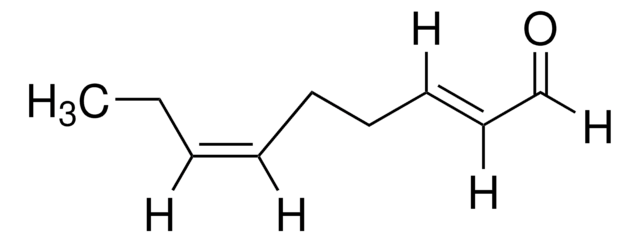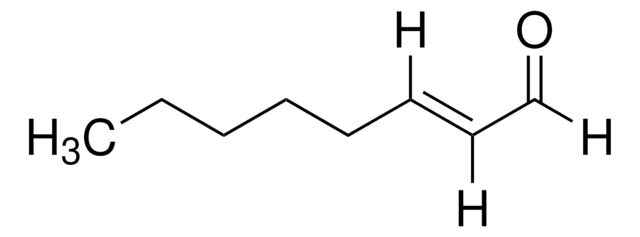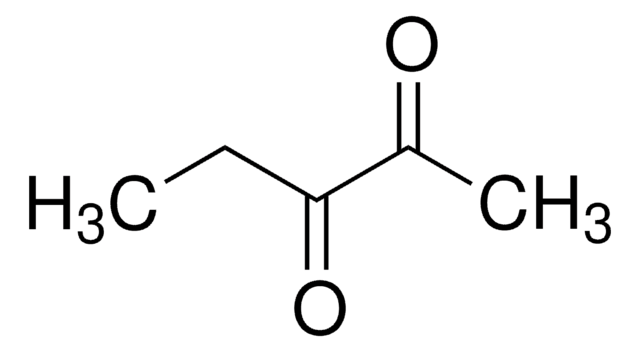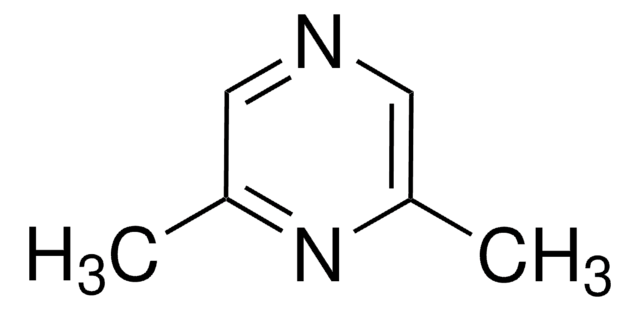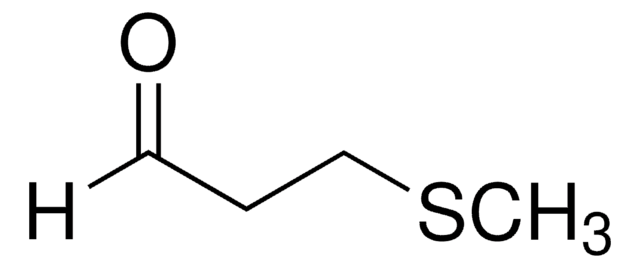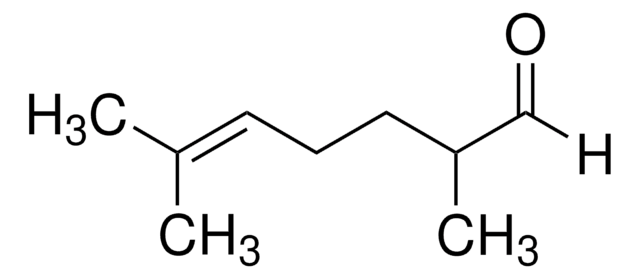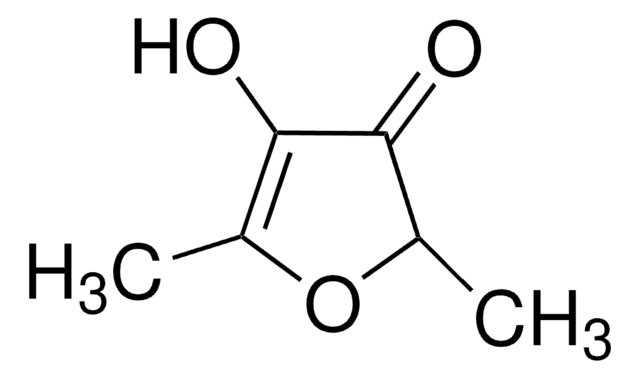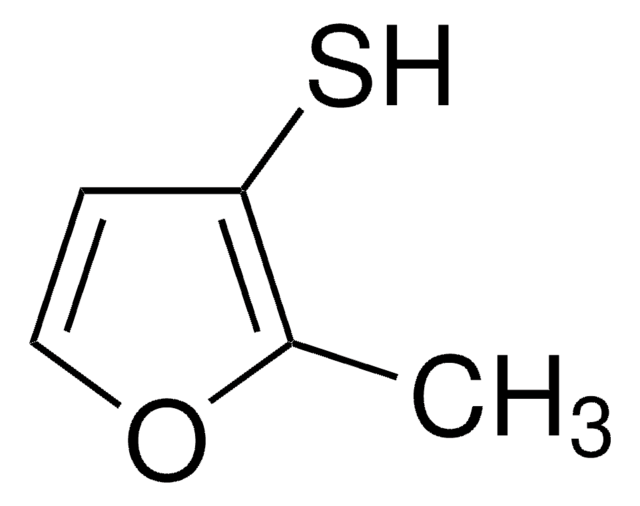W328901
cis-4-Heptenal
≥98%, stabilized, FCC, FG
Synonym(s):
(Z)-4-heptenal, N-propylidene butyraldehyde
About This Item
Recommended Products
biological source
synthetic
Quality Level
grade
FG
Fragrance grade
Halal
Kosher
Agency
follows IFRA guidelines
reg. compliance
EU Regulation 1223/2009
EU Regulation 1334/2008 & 178/2002
FCC
FDA 21 CFR 172.515
Assay
≥98%
contains
α-tocopherol, synthetic as stabilizer
refractive index
n20/D 1.434 (lit.)
density
0.847 g/mL at 25 °C (lit.)
application(s)
flavors and fragrances
Documentation
see Safety & Documentation for available documents
food allergen
no known allergens
fragrance allergen
no known allergens
Organoleptic
fatty; green; vegetable
SMILES string
[H]C(=O)CC\C=C/CC
InChI
1S/C7H12O/c1-2-3-4-5-6-7-8/h3-4,7H,2,5-6H2,1H3/b4-3-
InChI key
VVGOCOMZRGWHPI-ARJAWSKDSA-N
Related Categories
General description
Application
- Microbial community succession and their relationship with the flavor formation during the natural fermentation of Mouding sufu.: This study explores the role of cis-4-Heptenal in the flavor formation during the fermentation of Mouding sufu, highlighting its importance in food chemistry and microbial interactions (Chen et al., 2023).
- Kinetics studies of the gas-phase reactions of NO3 radicals with series of 1-alkenes, dienes, cycloalkenes, alkenols, and alkenals.: The paper discusses the reaction kinetics of cis-4-Heptenal with NO3 radicals, providing valuable data for atmospheric chemistry and the study of air pollutants (Zhao et al., 2011).
Biochem/physiol Actions
Other Notes
Signal Word
Warning
Hazard Statements
Precautionary Statements
Hazard Classifications
Flam. Liq. 3
Storage Class Code
3 - Flammable liquids
WGK
WGK 3
Flash Point(F)
105.8 °F - closed cup
Flash Point(C)
41 °C - closed cup
Personal Protective Equipment
Certificates of Analysis (COA)
Search for Certificates of Analysis (COA) by entering the products Lot/Batch Number. Lot and Batch Numbers can be found on a product’s label following the words ‘Lot’ or ‘Batch’.
Already Own This Product?
Find documentation for the products that you have recently purchased in the Document Library.
Customers Also Viewed
Our team of scientists has experience in all areas of research including Life Science, Material Science, Chemical Synthesis, Chromatography, Analytical and many others.
Contact Technical Service
